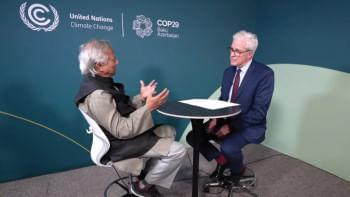Are we forgetting to be ashamed?

The day was started with a tentative breeze of hope that darkness of the old will be dispelled by the sun-ray of dawn of the Pahela Baishakh. The first day of Bangla New Year reminds us a culture of tolerance, respect and unity. Unfortunately this year the joyous celebration of this day was tainted by incidents of sexual assault on women in Dhaka University area.
This incident not only demeans the attached cultural significance of the day but also portrays the traditional unhealthy attitude of men towards women. It is not a mere incident of sexual assault rather it generates a sense of fear, sense of vulnerability, sense of dependency, sense of alienation, sense of insecurity, out of which a dignified life of women is constantly compromised.
The vulnerability of women in our context accelerates when the wrongdoers got impunity with the help or negligence of law enforcement authorities. Low conviction rate in our criminal justice system tarnishes the image of judiciary. As a result people are losing confidence over judiciary with each passing day. When offences go unpunished it not only encourages the wrongdoers to repeat the crime but also accelerates the agony of the victims. 'Justice would cease to be justice' if we fail to inflict the deserving punishment on the wrongdoers. If the failure of imposition of punishment on the perpetrators continues then it is obvious that injustice will be the best alternative form of justice in the context of Bangladesh.
It is evident that the laws and complaint procedures in Bangladesh are failing to serve justice to the victims of sexual assault. It is necessary to avail the benefits of individual complaint mechanism that is described under the Optional Protocol of the Convention on the Elimination of All forms of Discrimination against Women (CEDAW).
CEDAW's Optional Protocol establishes procedures for individual complaints on alleged violations of the Convention by State Parties, as well as inquiry procedures that allows the Committee to conduct inquires into serious and systematic abuses of women's human rights. So far the Protocol has been ratified by 71 Sates. But unfortunately Bangladesh is yet to ratify the Protocol. The incumbent government should immediately ratify the protocol and take necessary steps to avail the opportunity.
In addition, time has come to modify the indicators of discrimination and change the unhealthy attitude of men in compliance with Article 5 of the CEDAW. Article 5 elaborates on this duty by explaining that Sate Parties agree to modify the social and cultural pattern of conduct of men and women, with a view to achieving the elimination of prejudices and customary and all other practices which are based on the idea of the inferiority or the superiority of the either of the sexes or on stereotyped roles for men and women.
We are discussing a lot about laws to combat sexual harassment, their implementation crisis, inefficiency of law enforcing agencies and ending up with no results. Is it because our conscience is not working? Is it because our cognitive faculties of brain have been impaired? Is it because we have forgotten to be ashamed of doing wrongs?
Few days ago, Mohammad Badrul Ahsan, an opinion writer of the Daily Star wrote that Conscience has two components: Shame and Guilt. While the Shame reflects how we feel about ourselves and the guilt involves the awareness that our actions have injured someone else. These two emotions more or less cover the entire moral spectrum. He who doesn't feel ashamed does not feel guilty, equally true the other way around.
The most shameful shame of our time is that we have forgotten to be ashamed of doing wrongs.
The writer is Lecturer, Faculty of Law, Eastern University.


 For all latest news, follow The Daily Star's Google News channel.
For all latest news, follow The Daily Star's Google News channel. 



Comments